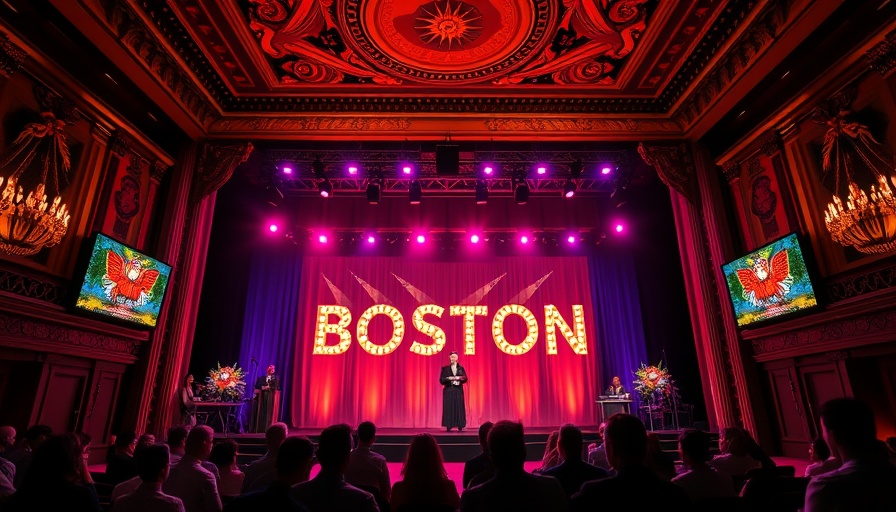
Unlocking the Power of Place: How Host Cities Drive Event Engagement
In the fast-paced world of B2B events, we're constantly seeking that elusive 'wow' factor to capture our audience's attention and drive engagement. One effective way to achieve this is by leveraging the charm and character of the host city. Quest Software's recent annual sales kickoff, NXT, exemplifies this approach, making Boston not just a backdrop but a central theme for its event.
Making a Historical Connection
Choosing Boston as the location for NXT was not merely a logistical decision; it resonated deeply with Quest’s vision of honoring its legacy while embracing software innovation. As Jennifer LuPiba, Quest's director of product marketing, notes, the decision was an opportunity to weave the city's rich history into the fabric of their messaging. Boston's unique elements invigorated the overall experience, with elaborate staging and decorations that incorporated historical references—from Boston Common's iconic statues to creative adaptations in vivid art installations.
Engaging Audiences with Immersive Experiences
The event took full advantage of Boston's historical backdrop. Instead of conventional setups, Quest transformed the Park Plaza Hotel into an immersive space where renowned artworks met modern design through creative projections. Attendees marveled at elements such as George Washington seemingly stepping out of his frame to engage with other pieces of art. This innovative fusion was not just visually stimulating but also pivotal to Quest's message of progress and innovation, setting the tone for a memorable kickoff.
Aligning with Brand Messaging
Consistency in branding was crucial for Quest at NXT. Every area of the Boston Park Plaza Hotel showcased reimagined artwork that clearly reflected Quest's values and forward-thinking ethos. The careful design integrated Quest’s branding seamlessly while echoing the historical significance of the space where they hosted their event. This cohesive approach ensured that the event was not just about discussing business but also about creating a lasting impression that embodied Quest's mission within a unique setting.
Practical Steps to Leverage Host Cities for Events
For businesses considering similar strategies, there are several takeaways from Quest's successful execution. First, it’s essential to align your event theme with the host city’s character and history, ensuring it reflects your brand’s values:
- Research Carefully: Understand the local culture, significant history, and relevant landmarks that can be tied into your event message.
- Immersive Design: Invest in creative designs that reflect both the city’s essence and your brand's core message.
- Engagement Opportunities: Create interactive experiences that resonate with the audience, drawing them into the local culture.
By employing these tactics, companies can enhance the engagement level of their events, turning simple gatherings into immersive journeys that celebrate both the host city and the company's objectives.
Seizing the Moment
For business owners generating between $2M and $10M+ in annual revenue, understanding how to craft impactful events is essential for scaling operations and driving customer acquisition. By creatively aligning your event themes with carefully chosen host cities, you're not just putting on a show; you're creating memorable experiences that resonate with attendees and foster brand loyalty.
Ready to explore how leveraging a host city's identity can elevate your next event? Consider implementing these strategies and watch your attendee engagement soar. Remember, it's everything about location, location, location, especially in the world of events!
 Add Row
Add Row  Add
Add 



Write A Comment